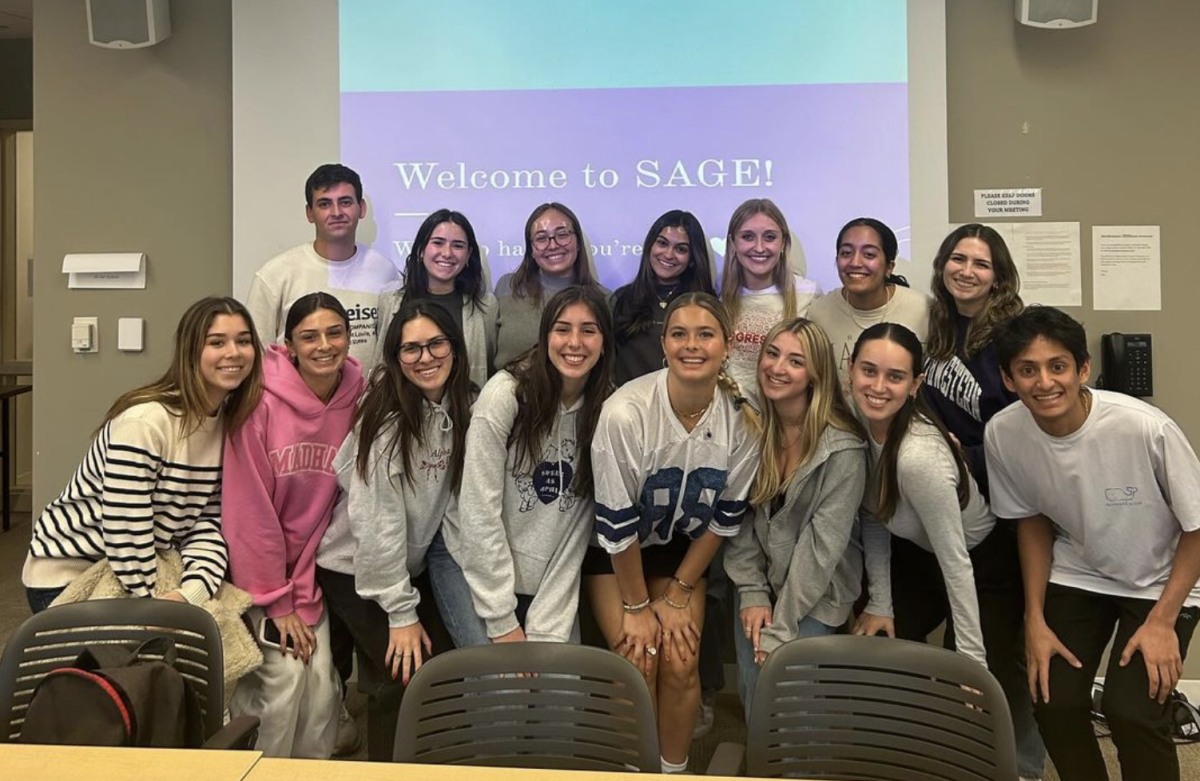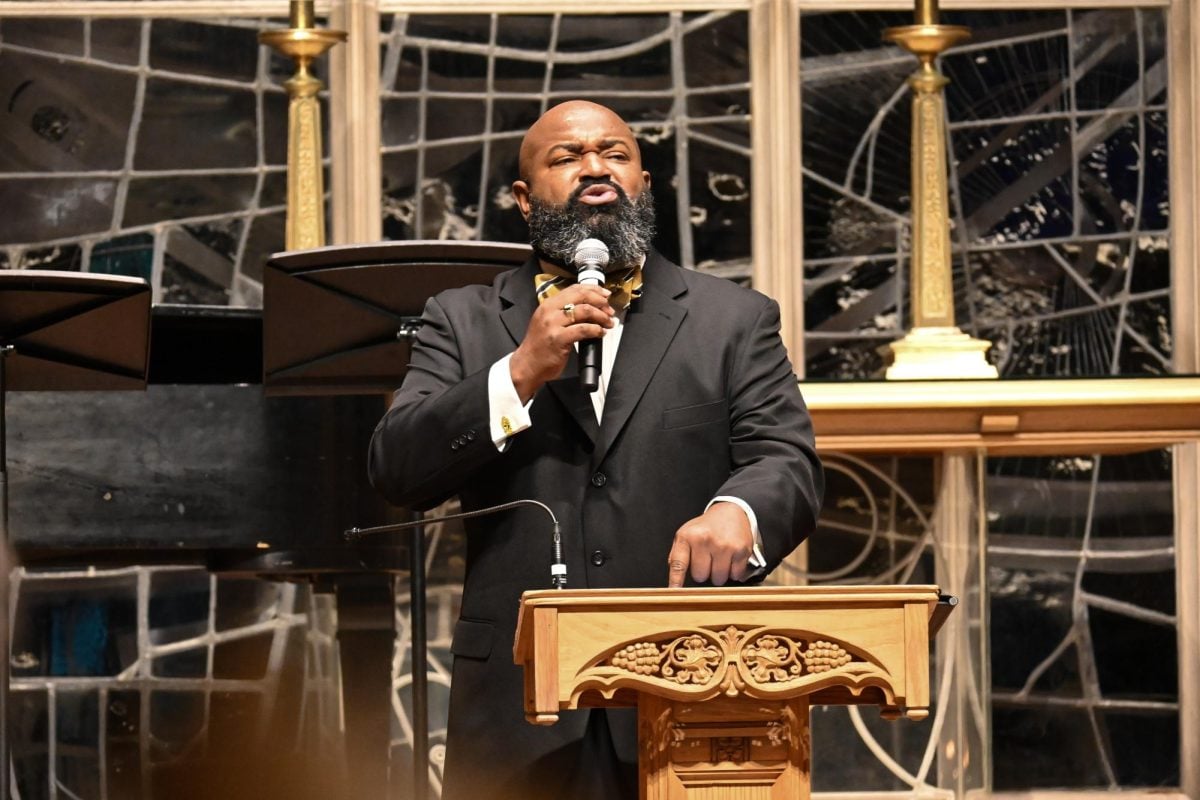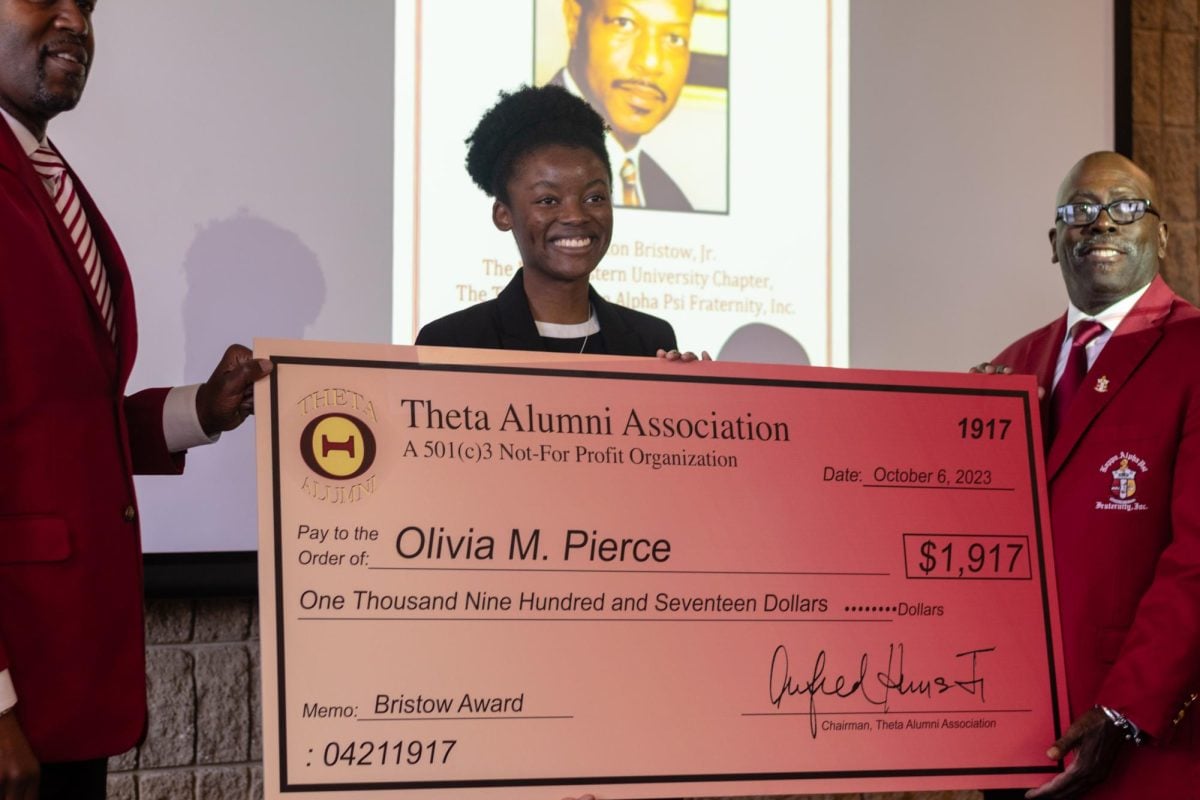Critically acclaimed photographer Loren Rex Cameron visited Northwestern on Thursday to display his photos of transgender individuals and spotlight issues associated with making a sex transition.
The event was sponsored by Rainbow Alliance and held in the McCormick Tribune Center Forum. Cameron, who underwent a female-to-male transition, showed his exhibition entitled “Cuerpos Pintados,” or “Painted Bodies,” which was published in 2003 and consisted of nude photos of transgender people. He also outlined the surgical procedures of each of his subjects.
Cameron said he started doing basic photography in 1993 and had his work showcased in galleries a year later. In 1996 he published a book, “Body Alchemy: Transsexual Portraits,” which showcases his photos and captured the attention of Roberto Edwards, a Chilean native who also photographs nude painted bodies and produced the “Cuerpos Pintados” exhibition.
Rainbow Alliance co-president Morgan Richardson said the group is using the event to help spearhead a petition in support of implementing gender-neutral bathrooms on campus. She said members of the organization first met Cameron at the Midwest Bisexual Lesbian Gay Transgender Ally College Conference and that the group wanted to bring him to campus to educate NU students about the transgender community.
“It’ll help people who are on board with the ‘L,’ ‘G’ and the ‘B’ but not with the ‘T,’ so I hope that it will foster a better understanding of that community,” the Communication junior said.
Cameron said through his photos, he intends to highlight the time and effort that making a transition entails. “I said (to others working on the exhibition), ‘Don’t Photoshop a thing,'” he said.
“This is about showing all of the stages of the surgeries. These scars are badges of honor.”
In addition to presenting his photos, Cameron highlighted the challenges that transgender people face. He said he believes transgenderism is rooted in hormone levels, and the community is marginalized because people do not understand this idea.
“Medical science is still working toward providing (proof of a hormonal basis) without a doubt,” Cameron said. “Until that, we are pathologized, which I have a problem with.”
Communication sophomore Cory Slowik, Rainbow Alliance’s student outreach and guidance and peer solutions chair, said the marginalization of transgender people may stem from a more public presentation of their transitions, which contrasts with the more private nature of being gay, lesbian or bisexual.
“Gender identity is a little more visible,” Slowik said. “If you present differently in public, you’re targeted more easily than if you do something in the bedroom.”
SESP freshman Kyra Robertson attended the event and said she appreciated the opportunity to view transgender society under a lens different from that of a college campus.
“For most of this year, it’s been focusing on changing the student body’s perspective,” Robertson said. “It was interesting to see what it means to be transgender in the adult community.”
Cameron said it is important to educate young people about the transgender community, as they will be the agents of change in society.
“They’re the next generation of thinkers and doers, and so I think it’s essential that they are exposed to all kinds of people and sexualities and gender expression,” he said. “I think it gives us hope for a more progressive society. They are definitely the torchbearers of that hope.”






